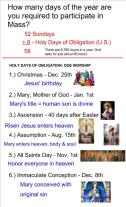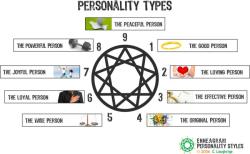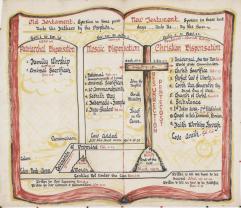What does the Bible say about being a godly woman?
The Bible offers guidance on what it means to be a godly woman. It provides various principles and qualities that women are encouraged to cultivate in their lives. It's important to note that interpretations and emphasis on specific passages may vary among different Christian denominations and individuals. Here are some key aspects of being a godly woman according to the Bible:
Faith and Trust in God: Proverbs 31:30 states, "Charm is deceitful, and beauty is vain, but a woman who fears the Lord is to be praised." Faith in God and trust in His plan are foundational aspects of godliness.
Virtue and Integrity: Proverbs 31 describes the virtuous woman who is trustworthy, honest, and has integrity in her dealings.
Modesty and Respect: 1 Timothy 2:9-10 advises women to dress modestly and with self-control, showing respect and godliness rather than emphasizing outward appearance.
Love and Kindness: The Bible encourages women to be loving, kind, and compassionate, as seen in passages like 1 Corinthians 13 and Proverbs 31:26.
Submission and Respect in Marriage: Ephesians 5:22-24 instructs wives to submit to their husbands, and husbands are called to love their wives as Christ loved the church.
Home and Family: Proverbs 14:1 suggests that a godly woman builds her home, focusing on nurturing and caring for her family.
Wisdom and Discernment: Proverbs is filled with wisdom, and it emphasizes the value of a wise and discerning woman.
Hospitality: 1 Peter 4:9 encourages believers, including women, to show hospitality to others.
Service and Ministry: Many women in the Bible, such as Mary and Martha, were involved in serving and ministry. Galatians 5:13 encourages believers to serve one another in love.
Purity and Sexual Morality: The Bible teaches the importance of sexual purity and faithfulness within marriage (1 Corinthians 6:18-20, Hebrews 13:4).
Prayer and Devotion: Being a woman of prayer and devotion is emphasized throughout the Bible. Women like Hannah and Anna in the New Testament are examples of devout prayer.
Humility: Philippians 2:3-4 encourages believers, including women, to do nothing out of selfish ambition and to have humility in their relationships with others.
It's important to approach these principles with a humble and open heart, seeking to understand their application in your specific life circumstances and cultural context. Different Christian denominations may have slightly different interpretations of these principles, so it's valuable to seek guidance and insight from your church community and spiritual leaders as you seek to live according to your understanding of biblical teachings.
1. Practical Applications of Integral Calculus
Integral calculus is a powerful tool that has many practical applications in a wide range of fields, including:
- Engineering: Integral calculus is used to calculate the area, volume, and center of mass of objects, as well as to design bridges, buildings, and other structures.
- Physics: Integral calculus is used to calculate the velocity, acceleration, and work done by an object, as well as to solve problems in electricity, magnetism, and fluid dynamics.
- Economics: Integral calculus is used to calculate the demand for goods and services, as well as to optimize production and distribution.
- Finance: Integral calculus is used to calculate the risk and return of investments, as well as to price derivatives such as options and futures contracts.
- Medicine: Integral calculus is used to develop new drugs and treatments, as well as to diagnose and monitor diseases.
2. Solving Real-World Problems with Integral Calculus
Here are a few examples of how integral calculus can be used to solve real-world problems:
- Calculating the area under a curve: This can be used to calculate the amount of water in a reservoir, the amount of gasoline used by a car, or the amount of solar energy collected by a solar panel.
- Calculating the volume of a solid: This can be used to calculate the amount of concrete needed to build a dam, the amount of oil in a reserve, or the amount of air displaced by an airplane.
- Calculating the center of mass of an object: This can be used to design airplanes and rockets that are stable in flight, or to build bridges that can withstand earthquakes.
- Calculating the velocity and acceleration of an object: This can be used to track the motion of a planet, design a roller coaster that is safe and exciting, or predict the trajectory of a missile.
- Calculating the work done by a force: This can be used to calculate the energy required to pump water to the top of a building, or the amount of fuel needed to launch a rocket into space.
3. The Role of Integral Calculus in Mathematics and Science
Integral calculus is a fundamental tool in mathematics and science. It is used to derive many important formulas and to solve a wide range of problems. For example, integral calculus is used to derive the following formulas:
- The area under a curve is equal to the definite integral of the function defining the curve.
- The volume of a solid is equal to the triple integral of the function defining the solid.
- The center of mass of an object is equal to the average of the positions of its points, weighted by their masses.
- The velocity of an object is equal to the integral of its acceleration.
- The work done by a force is equal to the integral of the force over the distance traveled.
Integral calculus is also used to solve many important problems in mathematics and science, such as:
- Finding the path of a projectile
- Calculating the flow of fluid in a pipe
- Predicting the spread of a disease
- Designing optimal control systems
- Developing new algorithms for image processing and machine learning
4. Techniques and Methods for Integrating Functions
There are many different techniques and methods for integrating functions. Some of the most common methods include:
- U-substitution: This method is used to integrate functions that contain composite functions.
- Integration by parts: This method is used to integrate functions that are the product of two functions.
- Trigonometric integration: This method is used to integrate functions that contain trigonometric functions.
- Partial fractions: This method is used to integrate functions that can be expressed as a sum of rational functions.
- Numerical integration: This method is used to integrate functions that cannot be integrated using analytical methods.
5. Resources for Learning and Mastering Integral Calculus
There are many resources available for learning and mastering integral calculus. Some of the most popular resources include:
- Textbooks: There are many excellent textbooks available on integral calculus. Some of the most popular textbooks include "Calculus" by James Stewart and "Calculus: Early Transcendentals" by Howard Anton.
- Online courses: There are many online courses available on integral calculus. Some of the most popular courses are offered by Khan Academy, MIT OpenCourseWare, and Coursera.
- Private tutoring: If you need more personalized help, you can hire a private tutor to help you learn integral calculus.
If you are interested in learning more about integral calculus, I encourage you to explore the resources listed above. Integral calculus is a powerful tool that can be used to solve a wide range of problems in many different fields.











